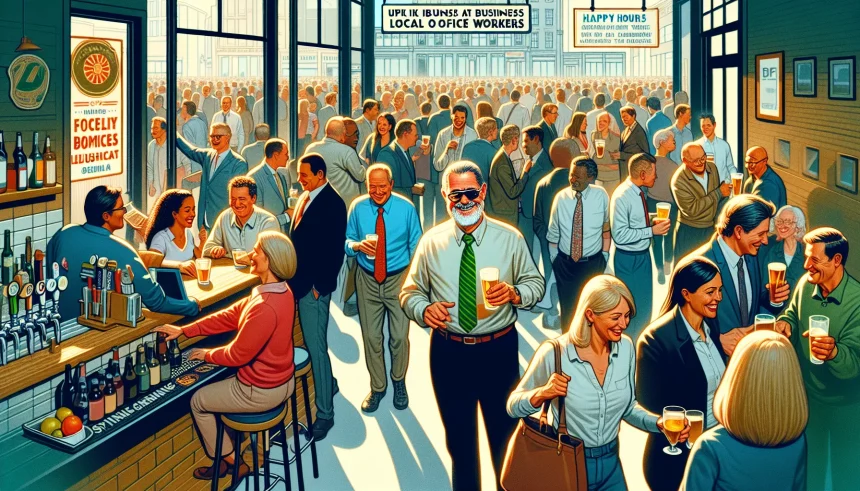Manuel’s Tavern owner Brian Maloof says his bar is busier as office workers come back, crediting an in-person work mandate announced by President Donald Trump. The Atlanta publican shared his experience on the business program Varney & Co., highlighting a shift that many neighborhood venues have sought since hybrid schedules took hold. His comments point to a fast-changing weekday economy where lunch hours, happy hours, and post-commute visits are rebounding.
Maloof described a noticeable uptick tied to office activity and commuter patterns. The move has renewed debate over how return-to-office policies affect small businesses, workers, and city cores that rely on weekday demand.
A neighborhood bar as a barometer
Manuel’s Tavern, a longtime meeting spot for locals and politicos, has weathered years of change in downtown and neighborhood traffic. During the remote-work surge, many bars and restaurants struggled with slower midweek trade. Managers trimmed hours and leaned on weekend crowds to fill gaps left by empty offices.
Now, Maloof says a shift is visible. While he did not share exact sales figures on air, he linked recent gains to more consistent weekday foot traffic and earlier evening visits. A tighter routine—office, commute, stop-in—appears to be returning.
“Manuel’s Tavern owner Brian Maloof joins ‘Varney & Co.’ to discuss the increase in business seen as a result of President Donald Trump’s in-person work mandate.”
Why office mandates matter for small business
Bars and restaurants near business districts rely on predictable patterns. When workers are onsite, they buy coffee in the morning, lunch at noon, and drinks after work. Those small choices add up across a week.
- Weekday lunch and happy hour are key profit windows.
- Consistent office schedules support staffing and inventory planning.
- Transit and rideshare use often rises with office attendance.
Owners like Maloof have long argued that certainty beats volatility. A clear mandate, they say, reduces the guesswork that comes with hybrid calendars, when Tuesday crowds surge and Thursdays slump.
The counterpoints: worker choice and timing
Not everyone agrees that mandates are the best path. Worker advocates say flexibility supports family needs, retention, and productivity. Some employees prefer hybrid schedules that cut commute costs and time. If mandates spark turnover, local businesses could see gains offset by broader labor disruptions.
There is also the question of timing. Office recovery can be uneven across neighborhoods. Venues closest to transit lines or dense office clusters may rebound faster than those tucked into residential corridors. A mandate can start the shift, but local factors shape the pace.
Signals to watch in the months ahead
Owners will be tracking a few simple markers to judge durability. Are weekday sales steady across all five days, or are crews only filling seats midweek? Are post-work visits rising earlier in the evening, hinting at shorter days? Do lunch check sizes reflect group outings or solo meals?
If patterns hold, bars can expand hours, rebuild teams, and restore menus trimmed during slower years. If they fade, operators may revert to weekend-heavy strategies and special events to fill gaps.
What Maloof’s comments say about the wider economy
Maloof’s on-air remarks place a familiar venue inside a national policy story. Local businesses often feel policy shifts first. A nudge to office routines can ripple through supply orders, staffing, and neighborhood safety perceptions tied to foot traffic.
For cities, stronger weekdays can support transit budgets and street-level retail. For workers, the trade-off sits between daily routines and flexibility gained in recent years. The balance will vary by employer and industry.
The early read from Manuel’s suggests that predictable office days bring predictable sales. Whether that becomes a long-running trend depends on how companies enforce rules, how workers respond, and how downtown amenities adapt.
As the return-to-office push unfolds, small venues will remain key indicators. If the barstools at places like Manuel’s fill up Monday through Thursday, the weekday economy is healing. If not, the future could still be hybrid, and local businesses will need to plan for mixed rhythms and creative ways to draw a crowd.







